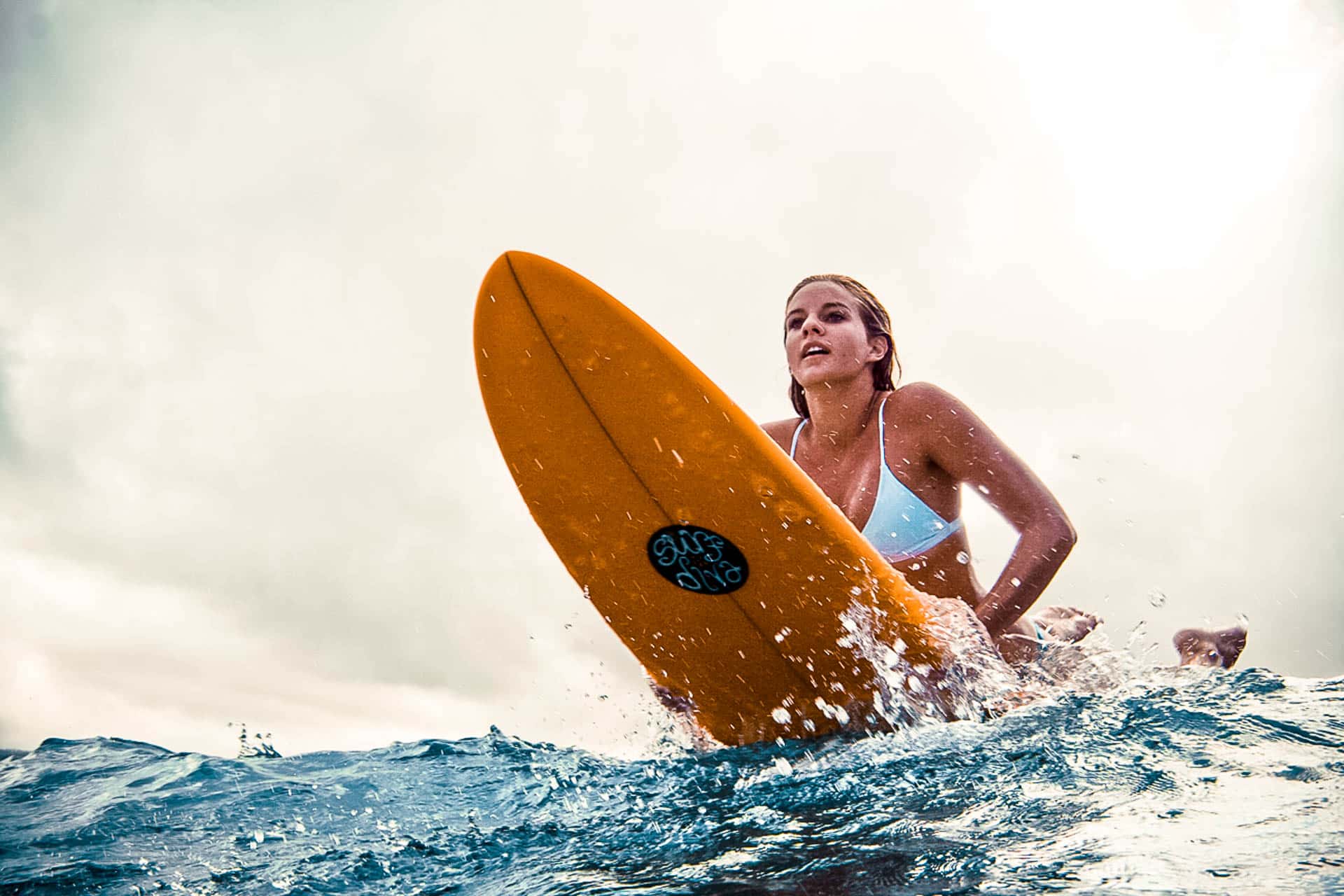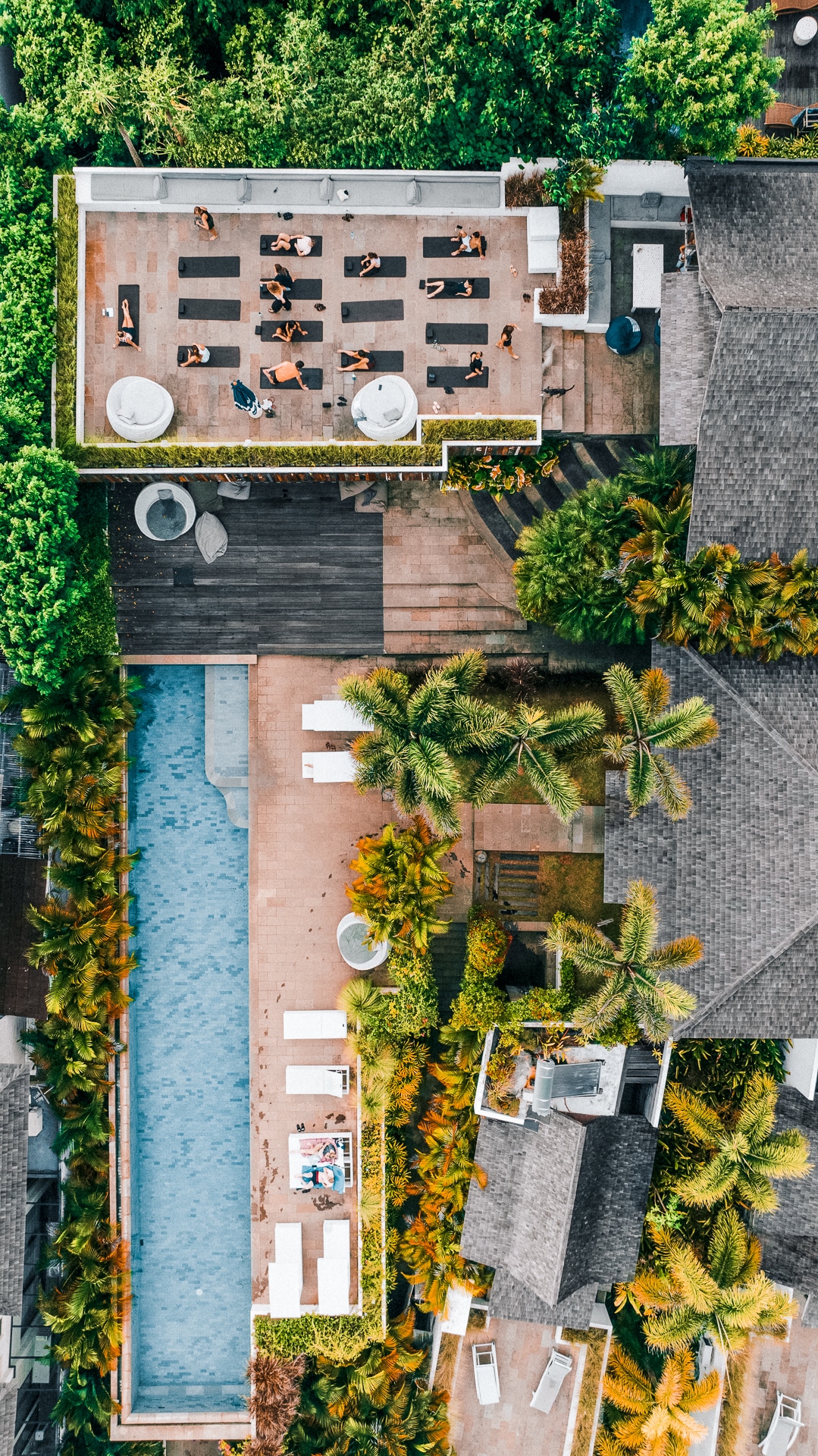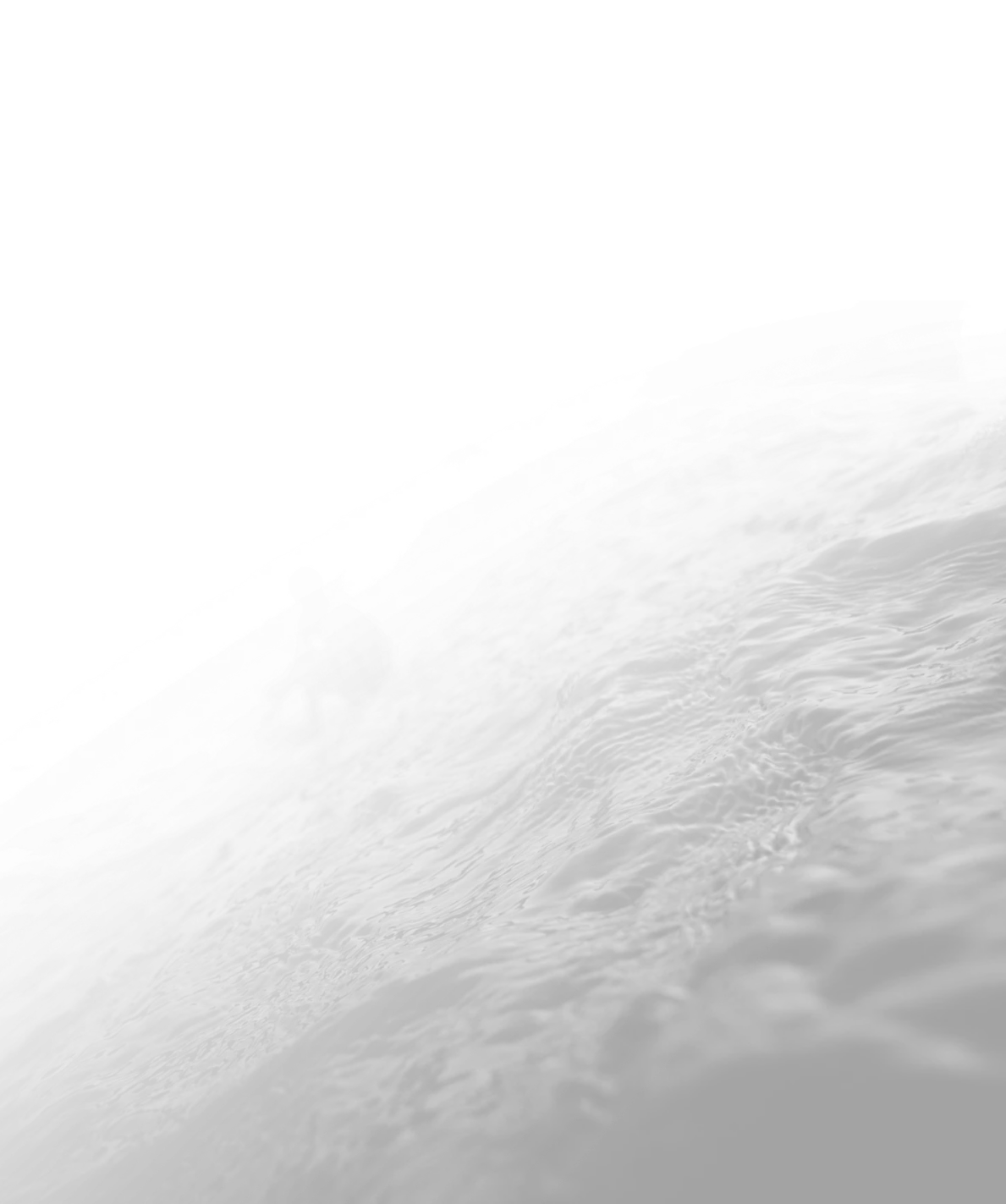Surfing is a thrilling water sport that involves riding the ocean waves on a surfboard. It is a popular activity, enjoyed by individuals of all ages around the world. Surfing requires skill, balance, and coordination as surfers paddle out into the water, wait for the perfect wave and then catch and ride it back to the shore. Surfing can be done in various types of ocean conditions, from small waves to massive swells, providing endless opportunities for experiencing thrill and challenge.
Whether riding waves for leisure or competing in professional events, surfing offers a unique connection to nature and a sense of freedom and exhilaration. It is a sport that embodies the spirit of adventure and the beauty of the ocean, making it a beloved pastime for many.
Benefits of Surfing
Surfing offers a myriad of health benefits that contribute to overall wellbeing. Physically, it is a full-body workout that engages the core, arms, and legs improving strength, stamina, and cardiovascular health. Surfing also provides relief from low back pain, as the twisting and turning motions engage and stretch the muscles in the lower back.
Mentally, the repetitive nature of paddling and riding waves can induce a state of mindfulness, enhancing concentration and focus. The therapeutic effects of being in the ocean, combined with the physical activity, can also reduce stress and promote relaxation. Additionally, surfing has been linked to a lower risk of mental disorders such as anxiety and depression.
Overall, the benefits of surfing contribute to a better quality of life, improving physical fitness, mental wellbeing, and promoting mindfulness. Engaging in this activity can lead to a healthier and happier lifestyle.
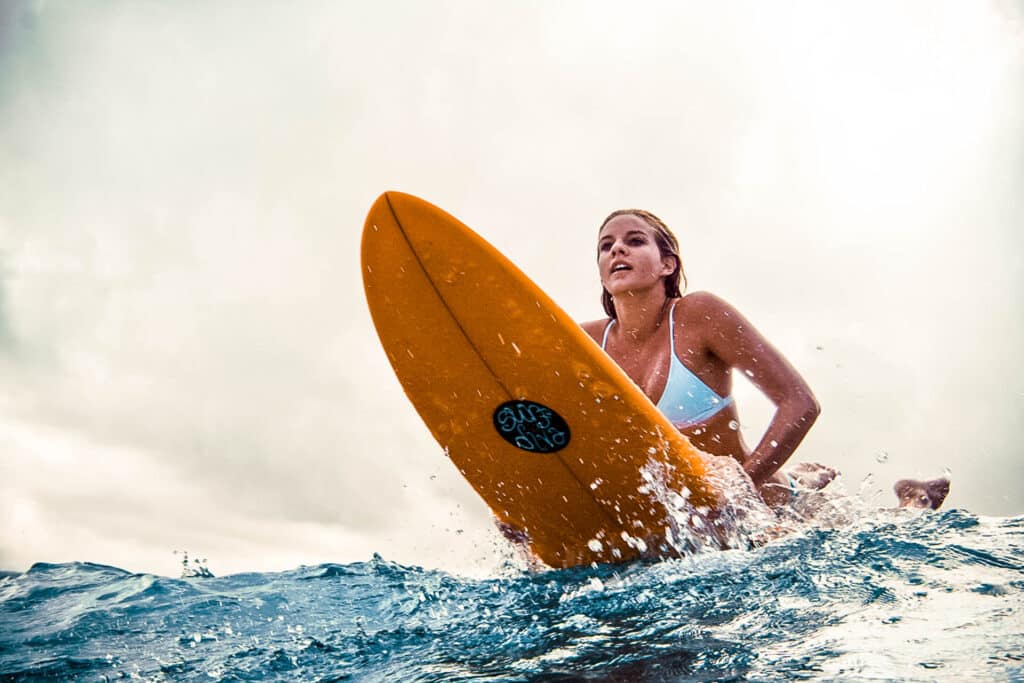
Mental Health Benefits of Surfing
Surfing offers numerous mental health benefits that contribute to overall well-being. From the therapeutic effects of being in nature to the physical activity and social interaction that comes with the sport, surfing has been known to show a positive impact on mental health. Whether it’s the calming effect of the ocean, the adrenaline rush of catching a wave, or the sense of community among fellow surfers, there are many aspects of surfing that can help improve. This includes improving one’s mood, reducing stress, and boosting mental resilience.
In this article, we will explore the various ways in which surfing can positively impact mental health, from reducing anxiety and depression to promoting mindfulness and a sense of purpose. Whether you’re an experienced surfer or someone considering trying the sport for the first time, understanding the mental health benefits of surfing can be a compelling motivator to dive into this exciting and therapeutic activity.
Surf camps in Bali and other places incorporate yoga with surf lessons for. This makes surfing even more appealing, especially in such surf schools. Meditation with yoga is another powerful stress relief technique that involves focusing the mind and eliminating negative thoughts. It can help to reduce anxiety and promote a state of inner peace and relaxation. Regular meditation practice has been shown to decrease stress levels and improve overall well-being.
Increased Self-confidence
Surfing can increase self-confidence in a few different ways. Firstly, the physical activity of surfing releases endorphins, which are hormones that act as natural painkillers and mood elevators. These endorphins reduce feelings of depression and anxiety, leading to an overall improvement in mental well-being and self-confidence.
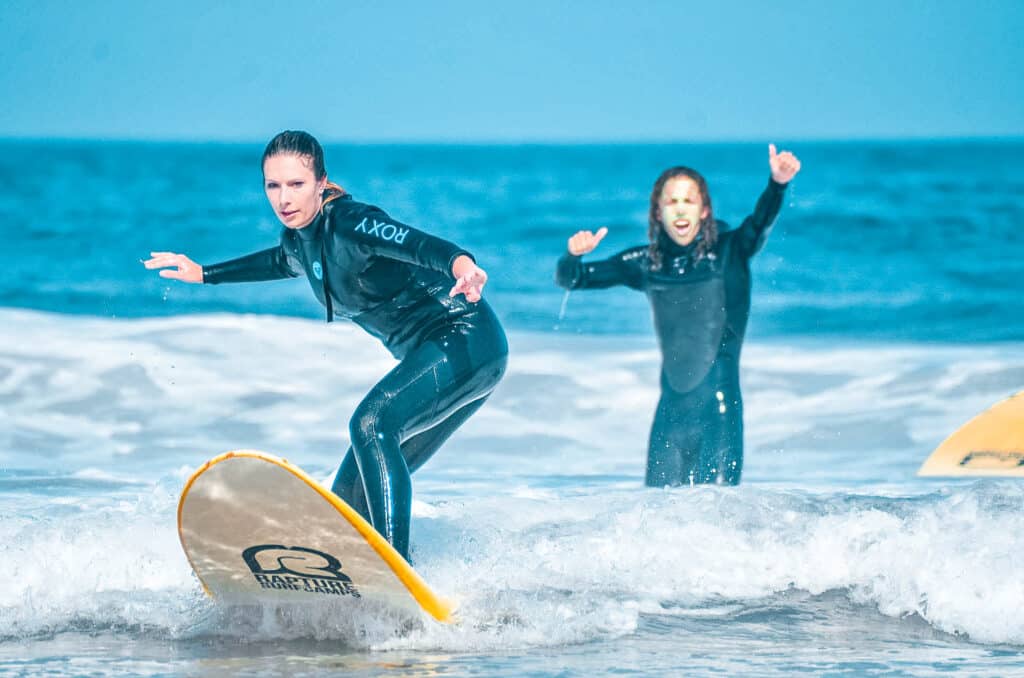
Additionally, tackling the challenges of surfing, such as mastering the waves and balancing on the board, can also boost self-esteem. Overcoming these obstacles can give individuals a sense of accomplishment and success, leading to an increase in self-confidence.
Furthermore, facing and conquering fears, such as fear of falling or fear of the unknown in the water, can also contribute to a sense of empowerment and confidence. Overall, the combination of endorphin release, overcoming challenges, and conquering fears makes surfing a great activity for boosting self-confidence.
Enhancing Social Connectivity and Building Community
Surfing can help build social connections and a sense of belonging to the community of surfers especially if you choose to live in a surf camp or similar setting. In areas where surfing is popular, community events such as festivals, fairs, and volunteer opportunities can bring people together, fostering a sense of togetherness and belonging.
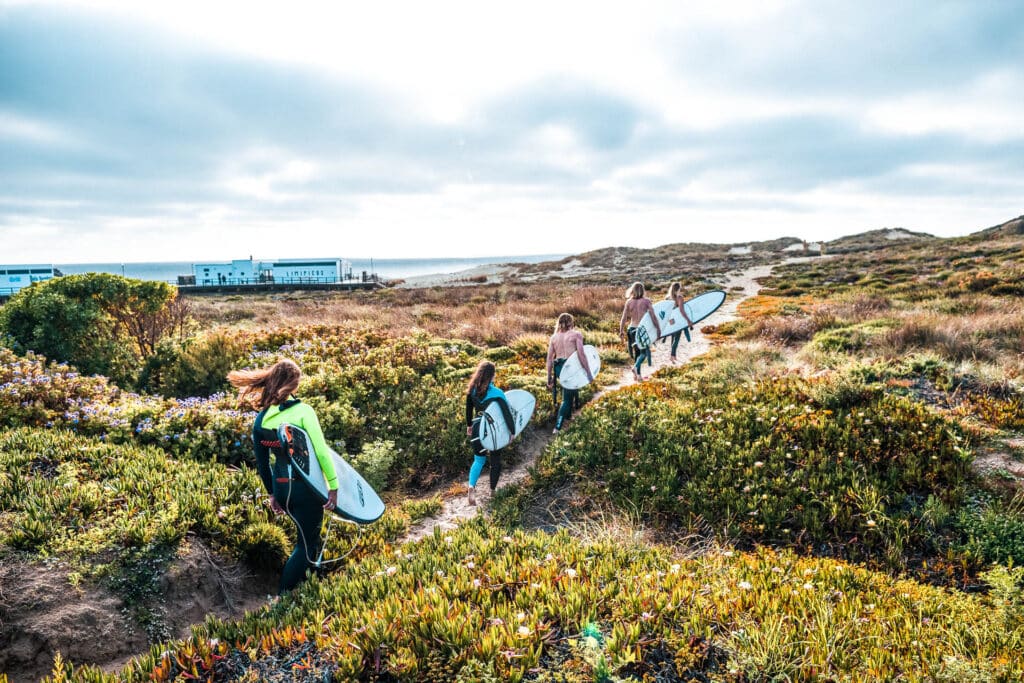
Creating online forums and social media groups provides a platform for regular communication among community members, allowing for the exchange of ideas, support, and information. Utilizing social media platforms like Facebook, Twitter, and Instagram can help connect with a wider audience and encourage participation in community initiatives, while also promoting inclusivity and diversity.
Learning to Surf as a New Year’s Resolution
Surfing as a deliberate life choice is more than just a hobby or a sport – it’s a lifestyle that encompasses a deep connection to nature, a sense of adventure, and a commitment to living in the moment. For many surfers, the decision to dedicate their lives to riding the waves is a deliberate and conscious choice that shapes their values, priorities, and daily routines.
From seeking out the best waves around the world to embracing a minimalist, laid-back approach to life, surfing as a deliberate life choice involves a commitment to personal growth, environmental stewardship, and a deep appreciation for the beauty of the ocean. This lifestyle is not just about riding waves, but about embracing a way of life that celebrates freedom, mindfulness, and the pursuit of happiness through the art and science of surfing.
Developing an Exercising Routine and Building Habits to be a Good Surfer
Developing an exercise routine and breaking bad habits are crucial for building surf skills. Regular exercise not improves physical fitness but also enhances mental well-being like we discussed earlier. Engaging in activities such as swimming, paddleboarding, and yoga can help develop the strength, flexibility and endurance needed for surfing, while also reducing stress and anxiety, thus supporting mental clarity and focus in the water.
Common bad habits that can hinder surf skills development include poor nutrition, lack of proper warm-up and stretching, and inadequate rest and recovery. Overcoming these habits may involve establishing a nutritious diet, incorporating dynamic warm-up exercises and stretching before surf lessons and ensuring adequate rest time.
Breaking these habits and developing a consistent exercise routine can significantly improve surf skills and overall health, leading to enhanced enjoyment and success in the water.
How to Find the Perfect Wave and Make it Part of Your Routine
To optimize your surfing experience and skills, it is important to establish a routine that includes regular surf sessions, proper warm-up, and stretching. Start by researching surfing spots with the best wave quality, crowd level, and accessibility. Consider surf camps in Bali, Costa Rica, or Nicaragua, as these locations are known for their great surfing conditions and experienced instructors.
Incorporate regular surf sessions into your weekly schedule to develop your skills and become comfortable in the water. Before hitting the waves, ensure you warm up your muscles with dynamic exercises to prevent injury and enhance performance. After your surf session, spend time stretching to improve flexibility and prevent muscle soreness.
Making surfing part of your routine will not only improve your skills but also provide a great way to stay active and enjoy the outdoors. By taking the time to find the perfect wave and committing to a regular surfing routine, you’ll be able to make the most out of your surfing experience and develop into a skilled surfer.
Ready to learn to surf in 2024?
Make your 2024 New Year’s resolution to learn to surf a reality with Rapture Surfcamps! Whether you’re dreaming of catching waves in Bali or mastering the surf in Costa Rica, we’ve got the perfect waves waiting for you.
Join our Surf Camp in Bali for an unforgettable tropical experience! Embrace the Pura Vida at our Surf School in Costa Rica, where adventure meets paradise! We have several options for locations for you!
Book your surf adventure now and kick off the New Year with a splash! Don’t miss out on the ultimate surf experience – because life’s better when you surf!
Hear What Rapture Surfcamps’ Guests Have To Say:
FAQs
Learning to surf is often seen as a thrilling and healthy way to embrace new challenges, stay active, and connect with nature. It’s a resolution that combines fitness, adventure, and the joy of mastering a new skill.
Absolutely! Many surf schools in Bali and other places cater specifically to beginners. They provide expert instructors, safe learning environments, and beginner-friendly waves to ensure a positive and enjoyable experience for those new to the sport.
While a basic level of fitness is beneficial, surfing is adaptable to various fitness levels. Surf schools often tailor lessons to individual abilities, gradually building strength and stamina as participants progress in their surfing journey.
Typically, surf schools provide all necessary equipment, including a surfboard and a wetsuit. It’s advisable to check with the specific surf school in advance to understand what they provide and if there’s anything you may need to bring.
The learning curve varies for each individual, but most people can catch their first waves and start feeling comfortable on a surfboard after a few lessons. Consistency and practice are key to improvement.
Many surf destinations like Bali offer favourable conditions year-round. Depending on the location, winter can bring excellent waves for beginners, and surf schools often operate throughout the year.
Always follow the guidance of your surf instructor. Additionally, understanding basic ocean safety, learning about rip currents, and wearing the appropriate safety gear, like a leash, can contribute to a safer surfing experience.
Many people find that surfing becomes a lifelong passion. Once you’ve grasped the basics, you can continue to advance your skills and explore different surf spots, making it a sustainable and enjoyable activity for the long term.
